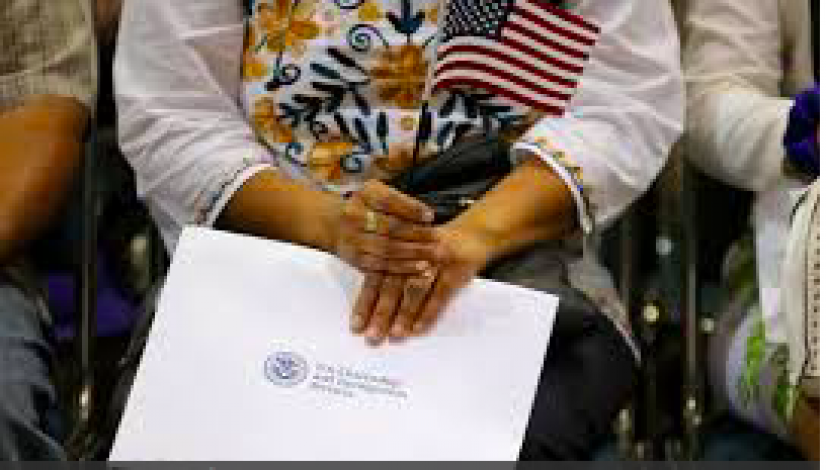Liz Peek: Census 2020 – Liberals, get over it, we must ask about citizenship!

Liberals are outraged over the Trump administration’s decision to include a citizenship question on the 2020 census. The query, they say, may deter some people who are in the country illegally from participating in the decennial headcount.
So what?
The census will provide the data for how hundreds of billions of dollars in federal program funds are distributed, and also determine how many seats each state has in the House of Representatives, as well as how many Electoral College votes go to each state. None of those questions should be influenced by the presence of undocumented people.
No, it should not. But it does now.
State leaders are increasingly choosing to allow a large portion of their populations to be people who have entered the country illegally.
California, most conspicuously, has made that choice, granting sanctuary to illegal residents and granting such people numerous benefits and rights. As a consequence, the state is home to about 2.5 million unauthorized people, making up about 6 percent of California’s population.
However, the inhabitants of other states that do not chose to underwrite a large undocumented immigrant population should not be penalized by the self-interested political decisions made by California’s Democratic leaders.
People who are in the country illegally are not supposed to receive food stamps, Medicaid or other federal assistance – but many do. A large number of families headed by undocumented people actually are on welfare, receiving those benefits through their U.S.-born citizen children.
The most recent “survey of income and program participation” from the U.S. Census Bureau shows that 62 percent of households headed by undocumented people are receiving federal welfare, more than twice the percentage for households headed by native-born Americans.
Many households without children also access welfare benefits through fraud or by accessing programs open to all residents of the country, like Emergency Medicaid. That program pays for hospital care and, in some states, long-term treatment like chemotherapy.
On the New York City Emergency Medicaid website, it advertises that the program “helps eligible, undocumented and temporary immigrant New Yorkers pay for medical costs when they have an emergency.” Emergencies include dialysis, giving birth and chronic pain.
Though it may sound harsh, this was not how the system was meant to work. Of course, for humanitarian reasons we need to treat anyone within our borders who is desperately ill. But as we face trillion-dollar deficits going forward, the U.S. must confront its spiraling entitlement and health care costs. Medicaid, a program that has grown way beyond its original intent, would be a good place to start.
This is not the first time a census has made political waves. In preparing for the 2010 census, President Obama organized his campaign coalition to help guarantee a fuller count of minority and illegal communities. He demanded nearly $1 billion of stimulus funds to pay community groups like the disgraced ACORN (which was finally dumped from the roster) to help with the headcount.
The upshot was an increase in House seats allocated to districts heavily populated by minorities and undocumented people – districts that just happen to mainly vote Democratic.
For instance, blue state California picked up five representatives. At the time, an op-ed in the Wall Street Journal noted that eliminating non-citizens could cost California a total of nine House seats by the end of the decade. The stakes are high.
This accounts for some of the hyperventilating on the issue of including the citizenship question in Census 2020. Former U.S. Attorney General Eric Holder called the inclusion of the question “a direct attack on our representative democracy.” As the current head of the National Democratic Redistricting Committee, he knows his party has much to lose.
President Trump’s Justice Department has justified the insertion of the citizenship question by saying it would help enforce the Voting Rights Act. That would seem to be a good thing. But critics of the administration’s decision say the real impact would be to undercount undocumented people who might be scared to acknowledge their lack of citizenship.
That argument is undercut by the results of the Census Bureau’s American Community Survey (ACS), which each year asks some 3.5 million households questions about citizenship status, place of birth and year of arrival. The Current Population Survey and other federal studies used to estimate employment levels ask similar questions.
Approximately 2.1 percent of households refuse to participate in the ACS; in states like Texas and California that have large undocumented populations the figure rises to 2 percent to 3 percent.
In other words, there is not a huge difference in states that have large unauthorized populations.
In any event, we should not care. The Founders of our nation did not envision a country containing 11 or 12 million undocumented people. Nor did they envision that population determining either fiscal or political representation.
In Article 1, Section 2 of the Constitution, they wrote: “Representatives and direct Taxes shall be apportioned among the several States which may be included within this Union, according to their respective Numbers….” They excluded “Indians” from the tally, describing them as “not taxed.” In that era, not taxed meant not a legal citizen. We should follow the same guideline today.
Published on Foxnews.com




